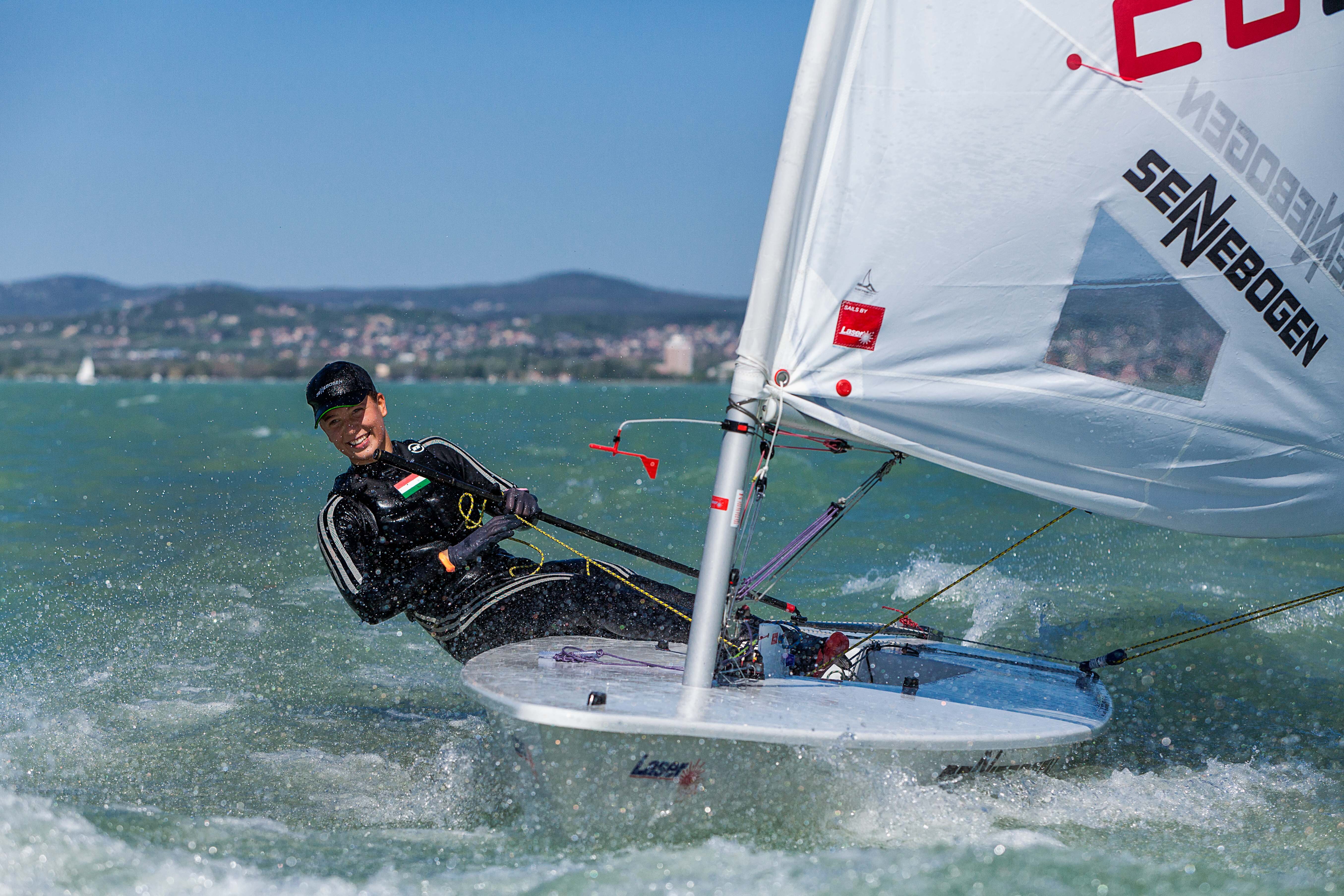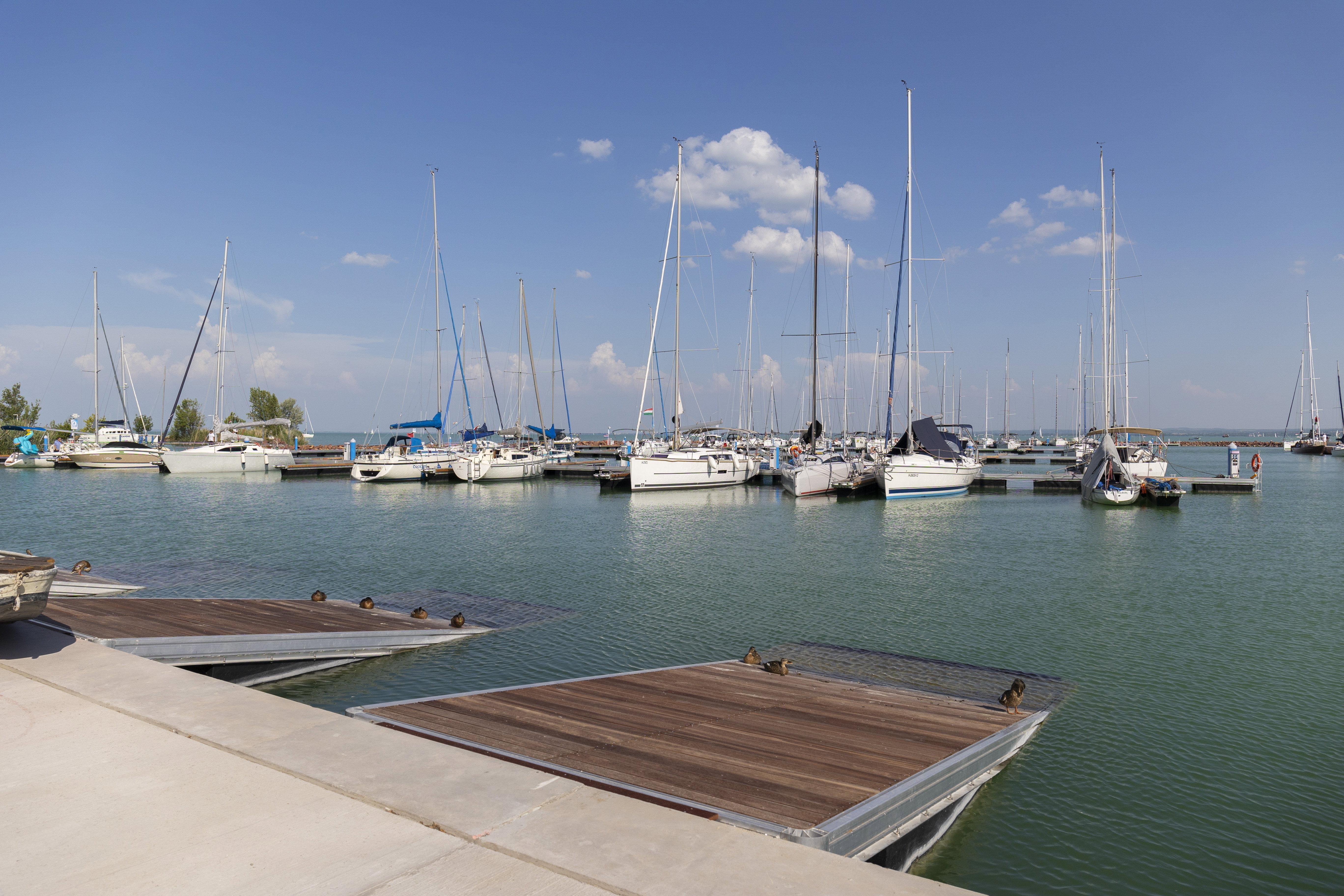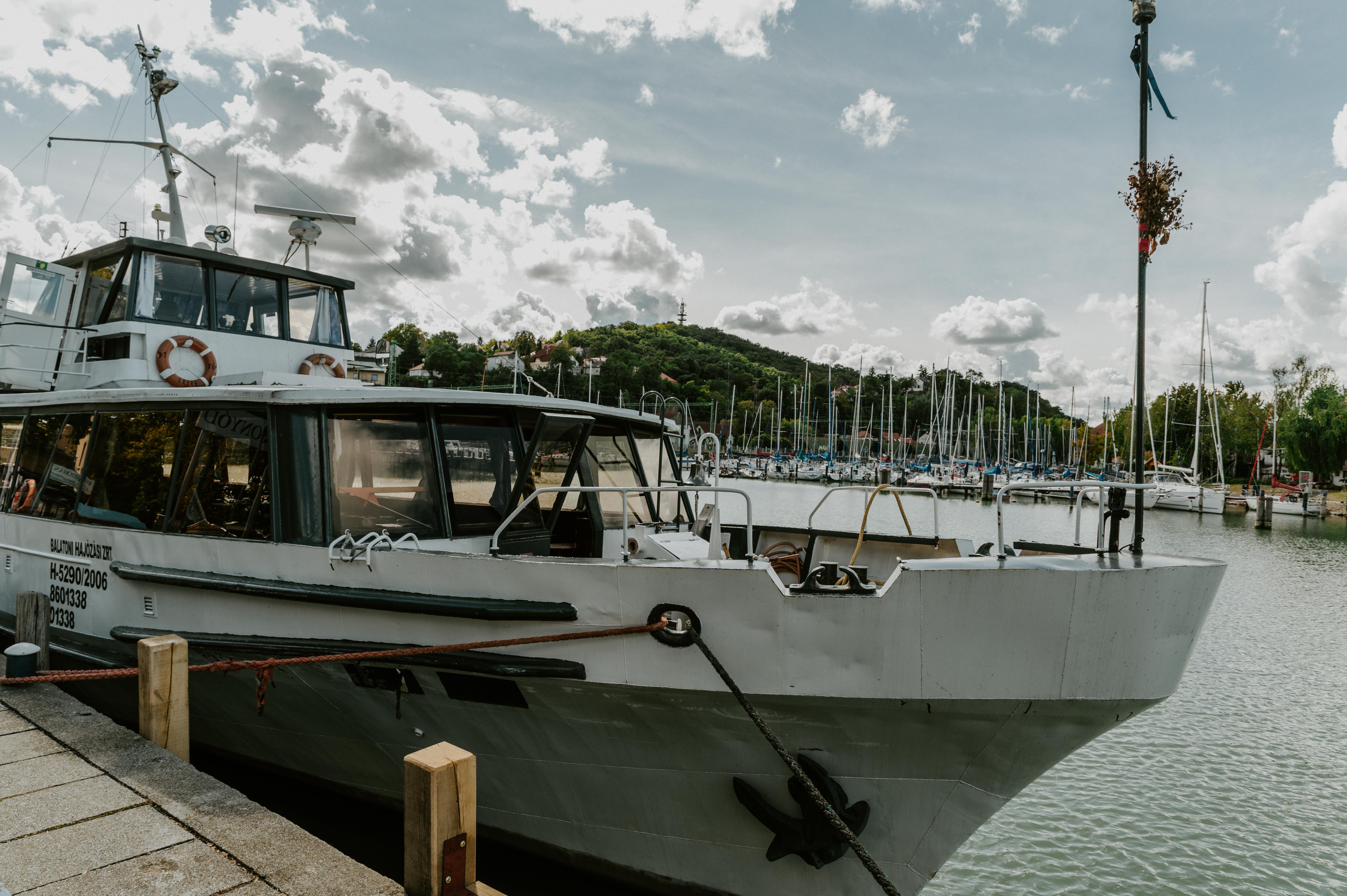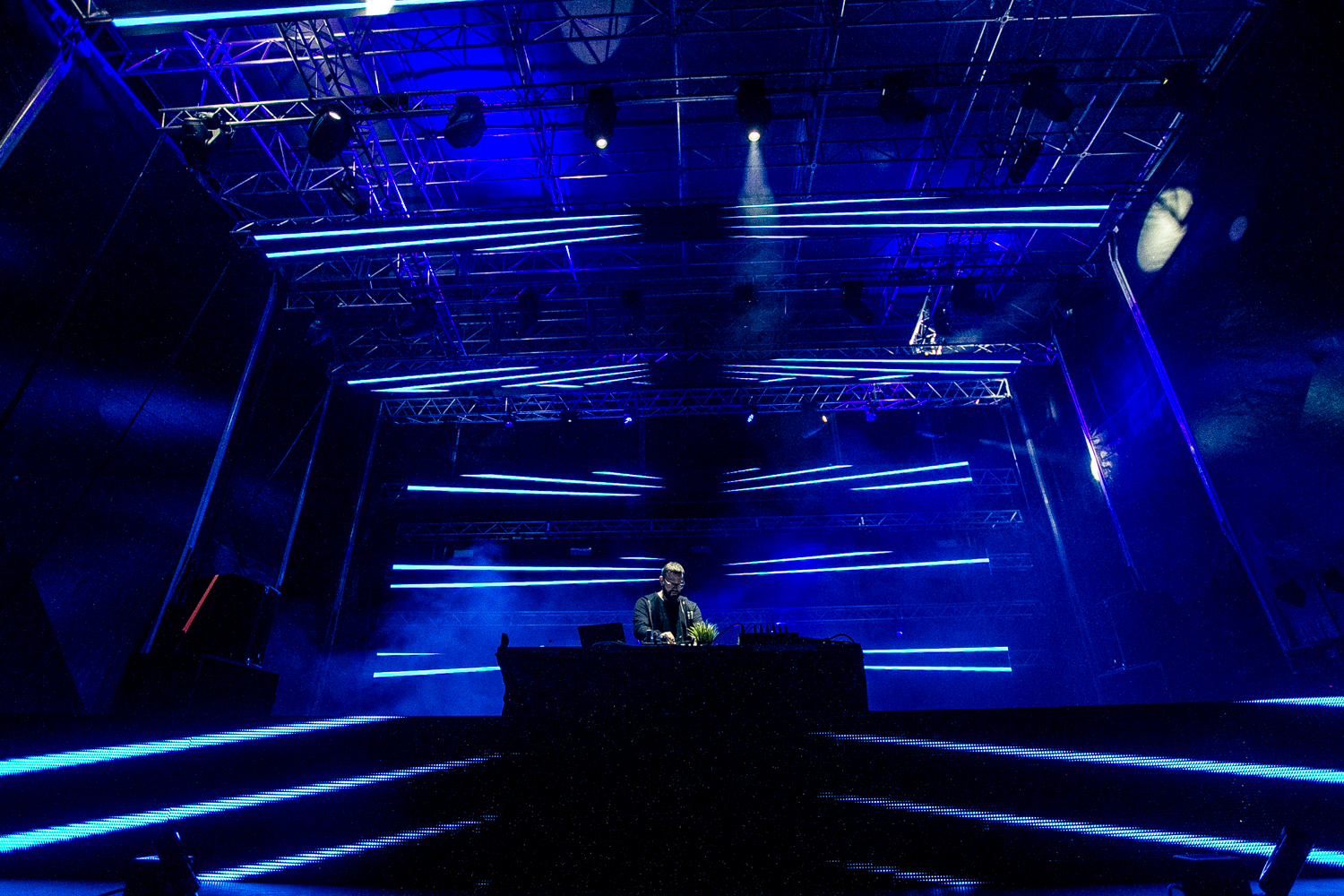Half past eight is quite early on a Saturday morning, at least for us, but by the time we arrive at Hajógyári Marina in Balatonfüred, Mári is already there in full gear, setting up her Laser boat, smiling, putting on a microphone – she’s getting ready for her next television interview.
After she’s done with the interview, she continues to put the finishing touches on the boat in silence. She’s just moved to this marina, and now she’s putting her boat together all by herself. She’s busy, but she’s happy to comply with the requests of the photographer: she smiles, looks away into the distance, she fiddles with a knot for five minutes if she has to, and she also answers the questions we have for her. Mári Érdi is a true Balaton girl, she’s lived by the lake since she was 8 years old: first the family moved to Vászoly, where her grandma lived, to run a riding school. Later they lived in Tihany and Balatonfüred, and recently they relocated to Mezőkövesd in East Hungary.

Tying knots and fixing blocks
The years spent at Balaton have left their mark: Mári started sailing around the age of 10, first in a two-person Cadet. “I didn’t like that boat, so we didn’t compete with it. I only trained on it, but I love to win, so I switched to Laser, and that's when I started competing.” Right now she’s a member of Tihany Sailing Club, and she’s based at her new sponsor Sennebogen’s Hajógyári Marina in Balatonfüred. When we ask her how many days of the year she spends on the water, she laughs: “What do they usually say? Two hundred days? To tell you the truth, I don’t know, a lot.” She loves sailing, but she has bad days, too. “When I come back from a long training camp, I usually don’t feel like being on the water. That’s when it’s good to come home, and take a break.”
Mári spends very little time in Hungary, she generally trains in foreign waters. First of all, when there’s a competition abroad, it’s ideal to get out there a couple of weeks before the race to train in local conditions. Also, she needs to sail alongside the best of the best as much as she can. “The conditions at home are very different from the ones at sea: Balaton winds are changeable, and you have to keep an eye on them; when you’re at sea, however, you have to pay attention to the waves and the currents.” We keep talking, and Mári keeps tying knots, adjusting her gear, and fixing blocks. She says she doesn’t really have a knack for technical things; she doesn’t normally rack her brain trying to come up with new solutions, but she enjoys the complexity of sailing a lot.

Sails against the wind, face against the water
When we set sail, we encounter strong winds, which occasionally exceed 50km/h, and the water is a mere 13 °C. It seems only the lifeguards can brave such conditions, going out onto the lake to pick up the few adventurers who ventured in too deep. Mári rides the waves gracefully; she looks perfectly focused, and she seems to be enjoying the backwind. She smiles a lot, and she manages the waves very skillfully, even though she’s soaked. The whole experience feels a lot like being at sea.
She’s in perfect shape; you can tell that she trains rigorously even when she’s not sailing. After an hour and a half of hard work, she looks absolutely fresh; you can’t really tell she’s just conquered a thousand waves, balanced a small boat with her entire body for 90 minutes, and coiled up meters and meters of rope.

Once we’re on dry land again, we put on dry, warm clothes – the motorboat and we the passengers got drenched as well. For lunch, we drop by Halászkert in Füred. The waiter seems to be perfectly aware of who’s sitting at the table, and starts chatting with Mári, whose every word is as friendly as can be. It’s apparent that she’s not playing a role; she hasn’t processed yet what fame means, and her kindness is entirely natural. She orders a big bowl of hot soup, but no dessert: we agree that’s a wise idea because of the approaching bikini season, but Mári needs to watch what she’s eating anyway. “After races I can eat more candy, but until then I have to restrain myself.”
Let's go to Rio!
Our lunch is also a meeting of generations: the helmsman of our motorboat was once a Laser sailor as well, and even won an Olympic quota place for Hungary. From their conversation, it becomes clear that those with hopes of successful Olympic participation don’t train for four years, but eight. “You need a few Olympic Games to get used to the feeling, and to learn not to freak out about competing at THE Olympics. By the second or third time you grow used to it, and the results start coming,” says our helmsman. Mári says Rio can be a great opportunity to gain experience, but she doesn’t put her competitiveness on hold: she’d be satisfied with placing in the first 20 in Rio, and she’s going for a medal in Tokyo. Judging by the pace of her progress, she’s actually got a chance, and she’d write history if she achieved her aim – she’d be Hungary’s first female Olympic medalist sailor. The country already has a medal-winning male duo, the Detre brothers: in 1980 in Tallinn they earned a bronze medal in the Flying Dutchman class.

We talk about more casual topics as well; for example, the beauties of being tutored privately. When another student in our party learns that Mári often has online classes on Skype, he gets really excited: “You can go to school in your underwear?” “Sure,” she adds “and if I say the internet connection is slow, I don’t have to turn on the camera, and I don’t even have to get out of bed."
After lunch, we squeeze in an extraordinary running session, but it’s nothing too serious. Our photographer friend wants an authentic training shot against the perfect background of the bustling shore of the Tihany Peninsula. We help to test the light, while Mári warms up – for a believable picture you need flushed cheeks. Mári is not used to being photographed all day; she doesn’t understand what the fuss is about, but the result is worth all the trouble.





